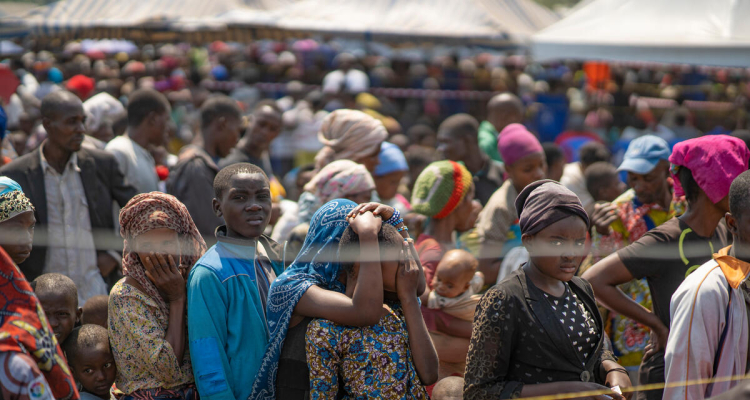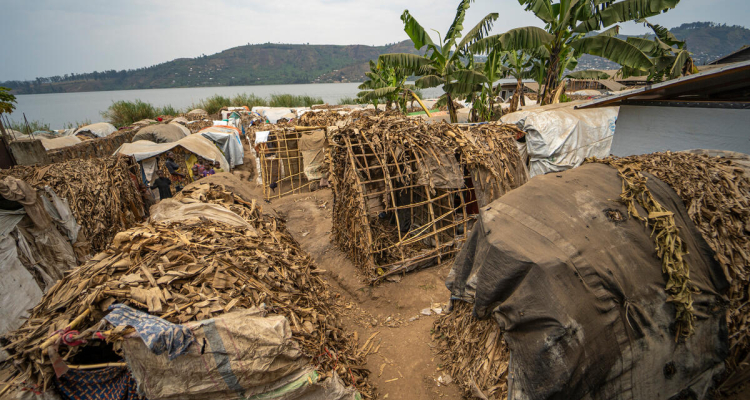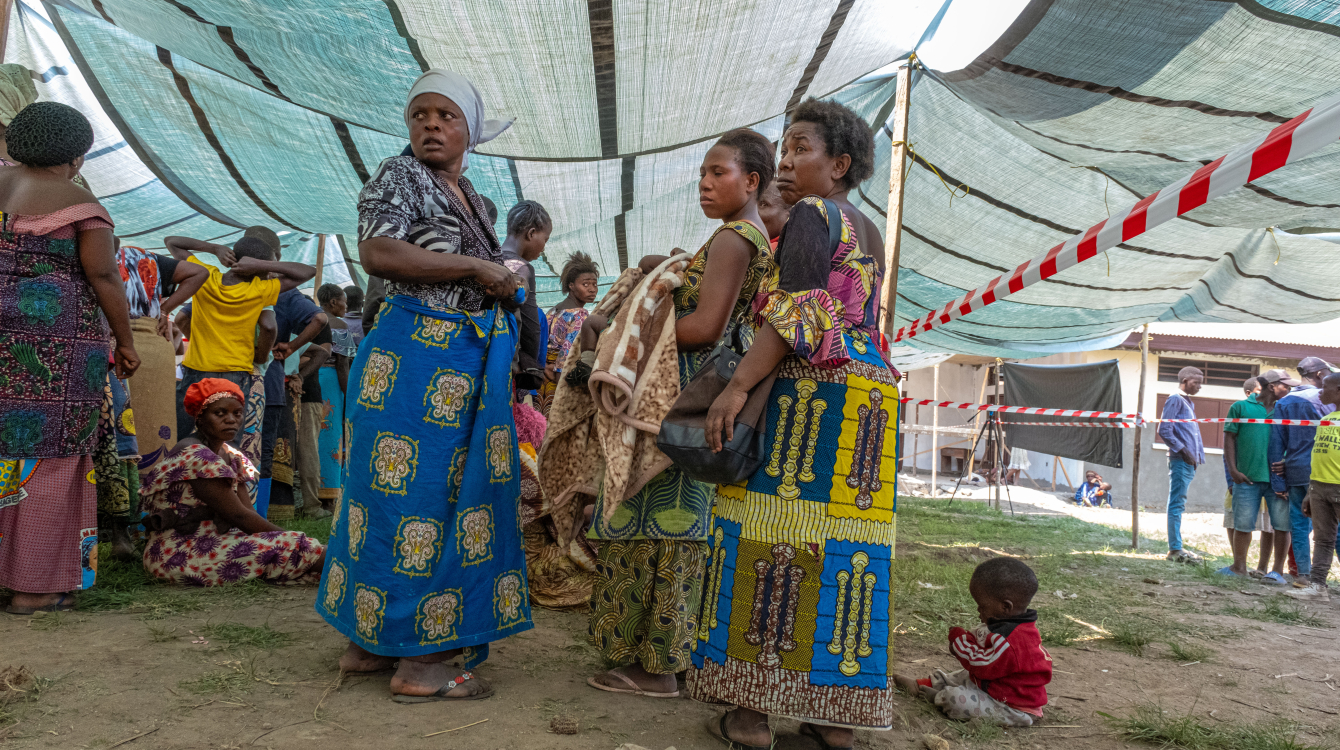In the Democratic Republic of the Congo’s conflict-ravaged northeast, 27-year-old Florence Mapendo faces an agonizing daily choice: hunger or violence. "Finding food is the hardest part," she says of the risk-filled quest to ensure her four children can eat at the Bweremana camp for conflict-displaced people, in DRC’s North Kivu province.
In this stunningly beautiful but deadly region of lush green hills, women like Florence are often attacked when venturing into fields surrounding the camp in search of sustenance and wood. It's a heartbreaking dilemma — and paints a grim portrait of a region where suffering has become a daily reality.

Gender-based violence is surging in eastern DRC, the World Food Programme (WFP) and other humanitarian agencies find. Between January and August alone, some 46,000 cases were reported across Ituri and North and South Kivu provinces. Women and girls report to resorting to forced prostitution to survive — earning as little as US$1 a day.
A mix of reasons lie behind the alarming uptick: from highly unequal gender relationships and unsafe living conditions, to hunger and poverty, deepened by insufficient humanitarian assistance for lack of funds. Moreover, conflict and security challenges often render WFP-assisted locations in North Kivu and Ituri inaccessible, causing frequent disruptions in food assistance delivery.
Together, they are forcing women to take risks to support their families.
Emergency response not enough
“We need an integrated approach” to tackle gender-based violence, says WFP DRC Head of Protection Veerle Triquet. “The current emergency response in camps for the displaced proves providing food is not enough.”
WFP and our partners are trying to put such a comprehensive, integrated strategy in place. It aims to combine providing essential WFP food and nutritional assistance with clean water and good hygiene — and to address underlying factors that put women and girls at risk of sexual violence.

Combining income-generating opportunities along with offering WFP food assistance, for instance, allows women to buy key essentials without resorting to prostitution — or to going to high-risk areas, where armed actors may be present, to search for food, water, and wood to sell. Ensuring safe spaces to sleep and proper lighting for women and girls using bathrooms at night are other ways to ensure their safety.

“We need to overlap our assistance, so households have access to trainings, literacy classes and nutritional education,” Triquet adds. “These transferable skills can provide women with opportunities to identify safe ways to meet their household’s needs and help build their confidence in a dignified manner.’’
WFP is also working with our humanitarian partners and women civil society groups to prevent gender-based violence, and to ensure safe access to emergency food assistance.
But we and the broader humanitarian community face a funding shortage, making it difficult to roll out a holistic prevention strategy — or ensure gender-based violence survivors have access to enough food, medical and psychosocial support, justice, and other essential rights.

Assistance running out.
Florence’s story mirrors those of many women in northeastern DRC. Her ordeal began in October 2022, when armed fighters stormed into her village of Buhambwe, in DRC’s North Kivu province. "We fled when the fighting became more and more intense," she recalls.

She and her children left at night, making a days-long trek by foot to Bweremana. At the displacement camp, straddling North and South Kivu provinces, WFP offers food assistance to many of its 56,000 inhabitants.
While Florence now has shelter, her worries are far from over. The safety and health of her four daughters, ranging from 12 to six months old, is now her paramount concern.
WFP’s cash assistance, amounting to US$87 for the family monthly, is welcomed.

But with WFP hit by a major funding crunch for its DRC operations, that assistance is has been forced to provide reduced rations, an average of 77 percent, reaching only one-third of the acutely food insecure and has been forced to limit assistance to only four months per year, which covers barely 10 percent of the total needs.
On a recent morning, Florence stands in line with dozens of other women, many holding infants, and all patiently waiting to collect their WFP cash. She has planned her purchases carefully, ensuring she can buy food like rice, oil and vegetables, but also medicine for her sick daughter.
"My children won't be hungry. At least not for a few weeks,” Florence says. But she’s already contemplating the day when WFP’S food runs out.
From January 2023, WFP assisted nearly 2.9 million people in three provinces of eastern DRC, including providing food and cash, along with livelihoods and nutritional assistance to women and girls. But we need US$546 million to sustain our emergency response in the region over the next six months. Otherwise, we will have to drastically cut our support.






























